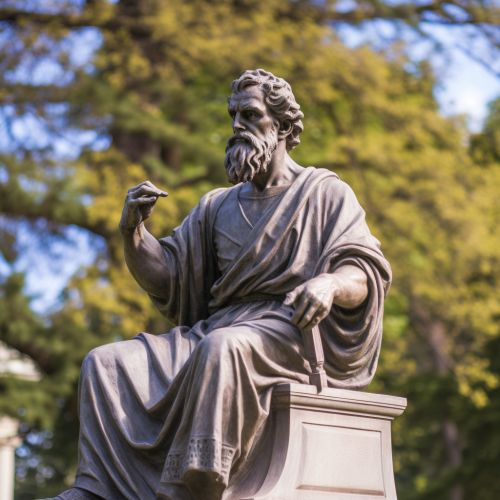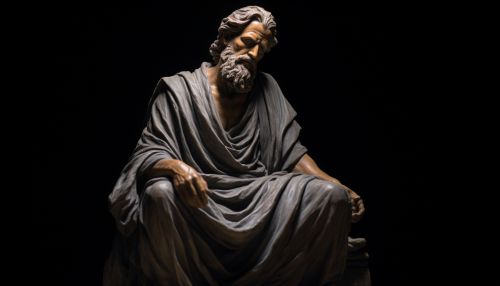Heraclitus
Early Life
Heraclitus was born in the ancient city of Ephesus, which was then part of the Persian Empire, in what is now present-day Turkey. The exact date of his birth is unknown, but it is generally believed to have been around 535 BCE. His family was of aristocratic lineage, but little else is known about his early life or education.
Philosophy
Heraclitus is best known for his doctrines that things are constantly changing (universal flux), that opposites coincide (unity of opposites), and that fire is the basic material of the world. The first of these is often summarized with the phrase "you cannot step into the same river twice" Panta Rhei (Everything Flows).
Doctrine of Flux
The doctrine of flux asserts that the world is always in change. According to Heraclitus, "Everything flows and nothing stays." This idea, which has been interpreted in various ways, is perhaps the most famous of Heraclitus' doctrines.
Unity of Opposites
The unity of opposites is a central theme in Heraclitus' philosophy. He believed that all things come into being through the simultaneous application of opposing forces. For example, we can only understand what 'up' is if we understand what 'down' is.
Logos
Heraclitus also introduced the concept of Logos, a term which he used to describe a principle of order and knowledge. According to Heraclitus, Logos is the underlying structure governing the Universe.
Influence and Legacy
Heraclitus' work has had a significant impact on later philosophers, including Plato and Aristotle. His ideas about change and the unity of opposites, in particular, have been influential in a variety of contexts, from philosophy to physics.
Criticisms
Like many philosophers, Heraclitus' ideas have been subject to various criticisms. Some have argued that his doctrine of flux, for example, is too extreme and fails to account for the apparent stability of the world.
See Also


